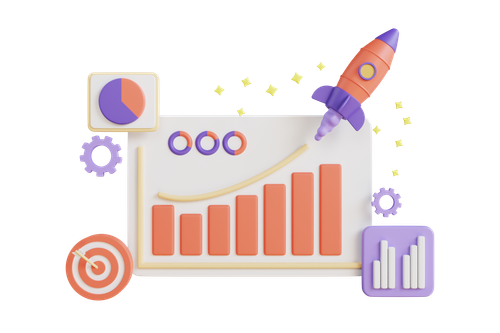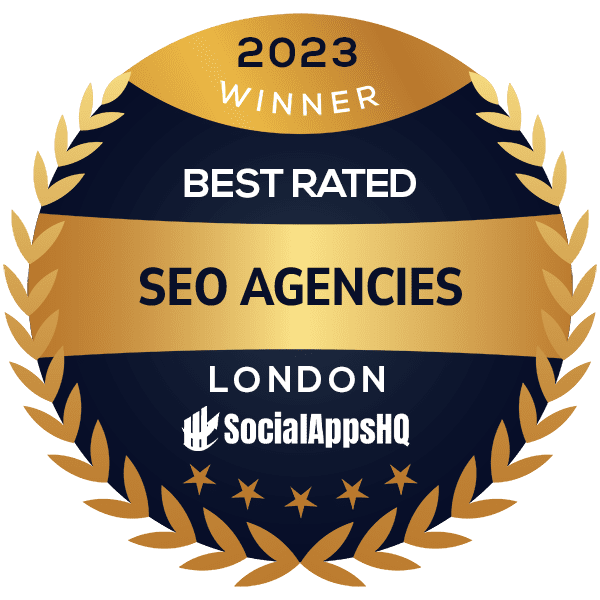Digital marketing offers many tools and strategies to help businesses increase their online visibility and drive traffic to their website. Two of the most popular methods are SEO (Search Engine Optimisation) and Google Ads. Each strategy has advantages and disadvantages, and the choice between them depends on the business’s goals, target audience, and budget. SEO aims to rank your website higher in organic search results, while Google Ads is a form of paid advertising that allows you to display ads to potential customers. In this article, we will discuss the advantages and disadvantages of both strategies and provide a cost vs reward analysis to help you decide which is right for your business.
SEO vs Google Ads: Advantages and Disadvantages
Regarding digital marketing, businesses can use two main strategies to drive traffic to their website and increase their online visibility: SEO (Search Engine Optimisation) and Google Ads (formerly Google AdWords). SEO and Google Ads have advantages and disadvantages; choosing one ultimately depends on your business goals and budget.
SEO, or Search Engine Optimisation, optimises your website and its content to rank higher in organic search results. SEO aims to increase your website’s visibility and attract more traffic from search engines like Google. One of the main advantages of SEO is that it can provide long-term benefits for your website. While it may take time to see results, a well-optimised website can rank higher in search results for months or even years, bringing in consistent traffic and leads.
Another advantage of SEO is that it can be more cost-effective than Google Ads in the long run. While SEO requires time and resources to optimise your website and create high-quality content, once you start seeing results, you can continue to reap the benefits without ongoing expenses. Additionally, many users trust organic search results more than paid ads, which helps to establish your brand as an authority in your industry.
However, there are also some disadvantages to SEO. It can take time and effort to see results, and there is no guarantee that your website will rank on the first page of search results. Additionally, SEO requires ongoing maintenance and optimisation to keep up with changes in search algorithms and stay competitive.
On the other hand, Google Ads is a form of paid advertising that allows you to place ads in front of potential customers searching for specific keywords related to your business. One of the main advantages of Google Ads is that it can provide immediate results. With Google Ads, you can start driving traffic to your website immediately and see a quick return on your investment.
Another advantage of Google Ads is that it allows you to target specific keywords and demographics, which can help to ensure that the right people see your ads. Additionally, Google Ads provides detailed analytics and tracking, which can help you measure your campaigns’ effectiveness and adjust as needed.
However, there are also some disadvantages to Google Ads. The cost of advertising on Google can be high, particularly for competitive keywords, and there is no guarantee that your ads will generate a positive ROI. Additionally, users may be less likely to click on paid ads than organic search results, and there is a risk of click fraud or ad-blocking software.
In conclusion, both SEO and Google Ads have advantages and disadvantages, and the best approach for your business will depend on your goals, budget, and target audience. A well-rounded digital marketing strategy may include a combination of both SEO and Google Ads, along with other tactics such as social media marketing and content marketing. By understanding the pros and cons of each approach and tailoring your strategy to your specific needs, you can maximise your online visibility and drive more traffic to your website.

SEO vs Google Ads: Which offers the best results?
When driving traffic to your website and generating leads, SEO and Google Ads are two of the most powerful tools in a marketer’s arsenal. Both digital marketing tactics have their strengths and weaknesses, and deciding which one to use depends on several factors, such as your budget, your marketing goals, and the nature of your business.
SEO, or search engine optimisation, is optimising your website and its content to rank higher in the organic search results of search engines like Google, Bing, and Yahoo. SEO is a long-term strategy that optimises your website’s content, technical structure, and backlinks to improve your site’s visibility in search engine results pages (SERPs). SEO is a highly effective way to drive traffic to your website over time, as it can take several months to see results.
On the other hand, Google Ads, formerly known as Google AdWords, is a pay-per-click (PPC) advertising platform that allows you to create and display ads on the Google search engine results pages and on websites that are part of the Google Display Network. With Google Ads, you can create highly targeted campaigns that immediately reach your target audience and drive traffic to your website.
So, which one offers the best results? The answer is, it depends. SEO and Google Ads have pros and cons, and the best strategy for your business depends on your unique needs and goals.
Here are a few factors to consider when deciding between SEO and Google Ads:
Budget
SEO may be the way to go if you have a limited budget. While SEO requires an upfront investment in time and resources, once you start ranking well in the search engines, you can continue to generate traffic to your website without spending additional money.
Timeframe
If you need to drive traffic to your website quickly, Google Ads may be the better option. With Google Ads, you can start seeing results immediately, whereas SEO can take several months to start seeing results.
Targeting
SEO and Google Ads can be effective if you want to target specific keywords and phrases. With SEO, you can optimise your content to rank for particular keywords over time, whereas with Google Ads, you can create targeted campaigns that show your ads to users searching for specific keywords.
Competition
If you’re in a highly competitive industry, it may take more work to rank well in search engines with SEO. In this case, Google Ads may be a better option, as you can bid on keywords to ensure your ads appear at the top of the search engine results pages.
Ultimately, the best strategy for your business depends on your unique needs and goals. A well-rounded digital marketing strategy may include a combination of SEO and Google Ads and other tactics like content marketing, social media marketing, and email marketing.
In conclusion, SEO and Google Ads can offer excellent results for your business, and the best approach depends on your specific needs and goals. By carefully considering your budget, timeframe, targeting, and competition, you can create a digital marketing strategy that drives traffic to your website, generates leads, and helps you achieve your business objectives.

SEO vs Google Ads: Cost Comparison
One of your biggest challenges is deciding where to allocate your budget. In today’s digital landscape, there are countless options for online advertising, but two of the most popular choices are search engine optimisation (SEO) and Google Ads. Both can help you attract more visitors to your website and ultimately increase your revenue, but which one is more cost-effective?
Let’s start with SEO. Search engine optimisation is optimising your website and its content to improve its ranking in search engine results in pages (SERPs). This involves various activities, including keyword research, content creation, and link building. SEO aims to get your website to appear at the top of relevant search results, thereby driving more organic traffic.
One of the most significant advantages of SEO is its relatively low cost. Unlike paid advertising, which requires ongoing investment, SEO is an upfront investment that can continue to pay off over time. For example, if you create a piece of content that ranks well in search results, it can continue generating traffic to your site for months or even years.
However, SEO does require a significant amount of time and effort to be effective. It can take months to see results, and you need to constantly monitor and update your site to keep up with changes in search engine algorithms. Additionally, there is no guarantee that your efforts will pay off – your competitors may also be investing in SEO, making it harder for you to stand out.
Now let’s turn to Google Ads. Google Ads is a paid advertising platform allowing you to place ads on Google search results in pages and other websites participating in the Google AdSense program. With Google Ads, you pay for each click on your ad (known as cost-per-click or CPC), and your ad’s position is determined by a combination of your CPC bid and your ad’s relevance and quality.
One advantage of Google Ads is that it can produce results quickly. Unlike SEO, which can take months to see results, you can start driving traffic to your site almost immediately with Google Ads. Additionally, you have more control over your ad’s placement and targeting, which can help you reach the right audience more effectively.
However, Google Ads can be more expensive than SEO, particularly for highly competitive keywords. The cost per click can vary widely depending on your industry and the specific keywords you’re targeting. It would help if you were careful to manage your budget effectively to avoid overspending.
So which is better – SEO or Google Ads?
The truth is it depends on your business goals and budget. SEO may be the way to go if you’re looking for a low-cost, long-term strategy for driving organic traffic to your site. However, if you need to see results quickly or have a more flexible budget, Google Ads may be a better option.
Ultimately, the key to success with either strategy is continually monitoring and optimising your campaigns to ensure you get the best possible return on investment. Whether you choose SEO, Google Ads, or a combination of both, a data-driven approach is crucial for maximising your results and achieving your business goals.
In summary, both SEO and Google Ads have advantages and disadvantages, and the best digital marketing approach for your business will depend on your goals, budget, and target audience. A well-rounded digital marketing strategy may include a combination of both SEO and Google Ads, along with other tactics such as social media marketing and content marketing. By understanding the pros and cons of each approach and tailoring your strategy to your specific needs, you can maximise your online visibility and drive more traffic to your website.
If you are still unsure about which approach is right for your business or need help with your digital marketing strategy, it may be helpful to contact Jellie Digital. This experienced digital marketing agency can provide a case study and cost vs reward analysis for SEO and Google Ads. Jellie Digital can help you make an informed decision and create a tailored digital marketing strategy to help you reach your goals and increase your online visibility. Don’t hesitate to reach out to them today!
FAQs - Quick Answers
SEO (Search Engine Optimisation) is a digital marketing strategy that optimises a website and its content to rank higher in organic search results. It aims to increase the visibility and traffic to the website by improving its content, technical structure, and backlinks.”
Google Ads is a pay-per-click (PPC) advertising platform that allows businesses to create and display ads on Google search engine results pages and websites that are part of the Google Display Network. It is a form of paid advertising that allows businesses to reach their target audience immediately.
SEO can provide long-term benefits for a website, can be more cost-effective in the long run, and can establish a brand as an authority in the industry. It also helps to attract more organic traffic from search engines like Google.
SEO can take time and effort to see results, and there is no guarantee that a website will rank on the first page of search results. Additionally, it requires ongoing maintenance and optimization to stay competitive.
Google Ads can provide immediate results, allows businesses to target specific keywords and demographics, and provides detailed analytics and tracking to measure campaign effectiveness and adjust as needed.
The cost of advertising on Google can be high, particularly for competitive keywords, and there is no guarantee that ads will generate a positive ROI. Additionally, users may be less likely to click on paid ads than organic search results, and there is a risk of click fraud or ad-blocking software.
The best approach for a business will depend on its goals, budget, and target audience. A well-rounded digital marketing strategy may include a combination of both SEO and Google Ads, along with other tactics such as social media marketing and content marketing.
Contact Jellie Digital today. With their proven track record of success, you can trust that they’ll deliver results that exceed your expectations. Start your journey towards success now, and let Jellie Digital be your partner in growth.
Feel free to take advantage of any of our free services:
FREE PPC Ads Account Audit with Improvement Report
or contact us about any of our services or a strategy session.


